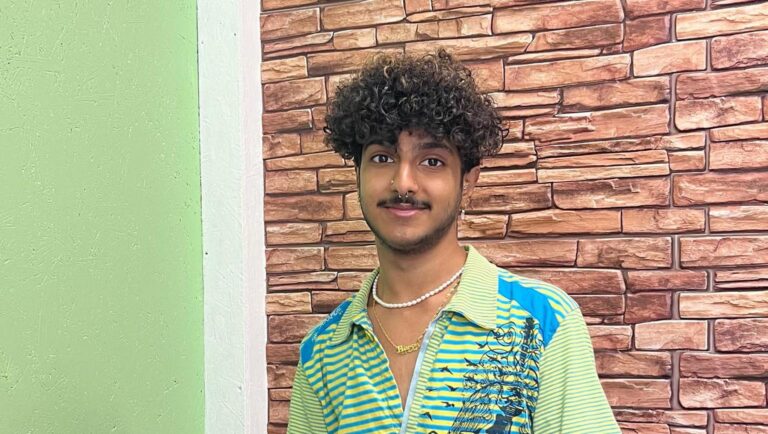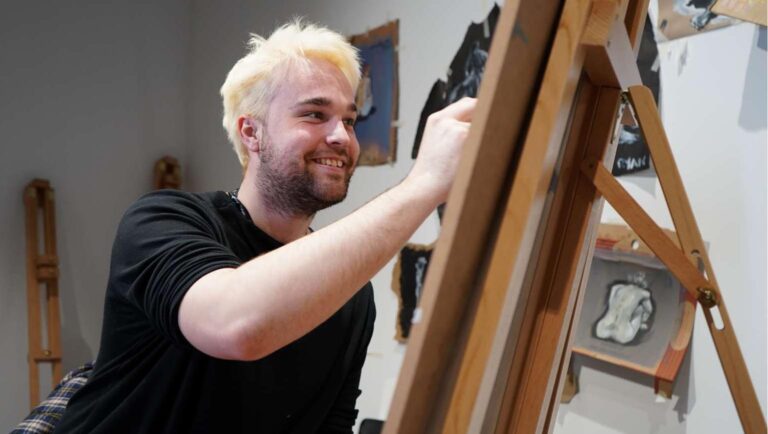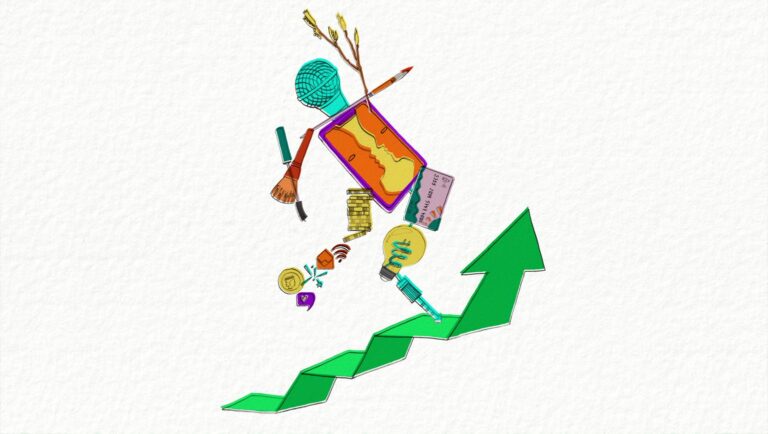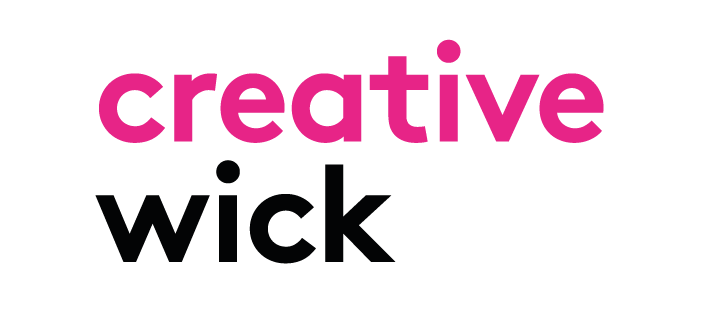
AJ from Park Pets on being an 18-yeard-old shop owner
Meet the teen entrepreneur who turned his lockdown dog-walking venture into a fully-fledged retail business
I have a few tattoos. They were scrawled onto me in different parts of the world, usually while drunk and without much emotional meaning – or tactical skill. Certainly nothing compared to the art that followers of the new tattoo renaissance display on their bodies. So I’m keen to meet the tattooists of Hackney Wick and get their perspective on this ancient art form, rising up today as a means of self-expression.
Maria Paradise is nestled in a warehouse style unit right on the edge of the Wick. I’m surprised just how peaceful and mellow it feels inside; incense is burning, there’s a soft murmur of rock’n’roll and a large painting on the wall reads ‘There is only dog heaven.’ It makes me laugh. Owner Luis is a Portuguese artist who moved to London six years ago. His studio is home to 10 resident tattooists and a handful of changing guests who visit from all over the world. Like many of his fellow artists, Luis is covered in tattoos. I notice many of his own pieces covering his chest and back as he takes off his shirt to reveal more.
“Tattoos are walking works of art”, he says. “People are their own collectors, curating their vessels with the artwork of the artist they love.” I ask why he thinks the age-old tradition of inking the skin is growing in popularity, and if it’s important that designs carry a deeper meaning. He replies in a warm tone, “our bodies are our last thread of pure freedom, why does it need a purpose!?” I’m getting the sense that the enormous pressure of ‘forever’ seems to be lifting, and I think about friends who’ve painstakingly hesitated over inking themselves, indecisiveness eventually turning them off altogether, leaving their skin untouched.

Luis operates through bookings only, no walk-ins. He talks me through his enormous book of flashes containing hundreds of drawings, words, symbols and signs, all drawn by him. He does not offer custom tattoos, he prefers an intuitive, on the spot instinctual choice. Bold. Is this the new generation’s response to permanence, or maybe he’s just sick of timewasters? Perhaps we don’t want to think about tomorrow in a world of uncertainty, on a burning planet, and maybe it’s smart to reframe our relationship to the idea of ‘forever’ and instead focus on living now?
Not too far away, Only Here for You (formally The Lacemakers) is nestled down a side street in the heart of the Wick. The energy inside is busy, dynamic and interactive. The walls are covered in the work of various tattoo artists, and there’s a large ritualistic altar in the corner, full of meaningful objects. It feels like I’ve walked into the scene of a Tarantino movie. If Maria Paradise is ‘new gen’ then Only Here For You is most definitely traditional. There’s a distinct difference between the energies of the two places. This is a shop of characters, each with their own look and essence. I’m greeted by manager James, a friendly Welsh guy who was formerly a musician in the band, Crows. He tells me the studio houses five residents and seven artists, they offer a walk-in policy and provide custom tattoos. He introduces me to Delphine, a French powerhouse and tattooing legend. She opened The Lacemakers seven years ago and passed the studio down to her apprentice, Elliot, as is the traditional tattooing etiquette. Her passion and intricate knowledge of the art is obvious, and I sense I’m sitting opposite a woman who has seen it all.

“This work used to be hard, but now it’s soft,” she says. She explains that, as a woman, carving her place in the industry meant “working her ass off” whereas younger generations now rock up with a basic stick ‘n poke technique learned online. “With the rise of social media, legendary shops have closed,” she laments. After spending the morning with Luis I’m eager to compare perspectives. Does Delphine similarly consider the body a vessel to be expressed upon, then curated? She looks me dead in the eye, like a film star delivering the final line of a movie: “It’s a healing process. You get tattooed because there is something so deep inside of you that you have no words for it. It’s a Shamanic practice, like a blood ritual.” So how would she describe the difference between these two approaches to tattooing? “Easy. Old Gen is an internal process, New Gen is an external process.”
Our conversation makes me think of the ancient cultures in which tattooing was a sacred and profound initiation into a new way of being, a new skill or healing capacity. In a time where everything is so externalised, to reflect upon the inner world, to excavate inner wounds and display them boldly is both profound and therapeutic. I get the sense that to a lot of people, getting inked is like reappropriating their bodies, reclaiming themselves after a period of feeling lost.
Just as I’m leaving, I meet another resident, Pata, whose entire face is covered in tattoos. I can’t help but get lost in the stories it tells; without speaking a word he is saying so much. He explains that the process is “trauma informed, and highly spiritual.” He speaks of it like a therapeutic passage into breath and presence. When we commit to seeing ourselves in our totality, we move the pain and share it with the world. So why did I get a badly drawn love heart behind my ear that now looks like a raisin? Did I want to hear more love, or was I just 14 and it was the first symbol I could think of? My tattoos aren’t the walking gallery standard of Maria Paradise, or the sacred initiations of Only Here For You, but I do feel a newfound love and self-acceptance for these inky memories. Tattooing is not just an expression of beauty, it goes further than being skin deep. It’s a process, a journey, and a passage to truth.

Meet the teen entrepreneur who turned his lockdown dog-walking venture into a fully-fledged retail business

No less than six world class universities have now gravitated to establish campuses on the Queen Elizabeth Olympic Park, offering an inspiring range of courses

Breaking into an arts and culture role can seem like a closed shop if you don’t know where to start, so here’s our guide to what’s out there
A joint venture in collaborative local media from:


In partnership with

Regulated by IMRESSS, the IndependentMonitor for the Press CIC.

For more info on our complaints policy, or to make a complaint, please see our FAQ.